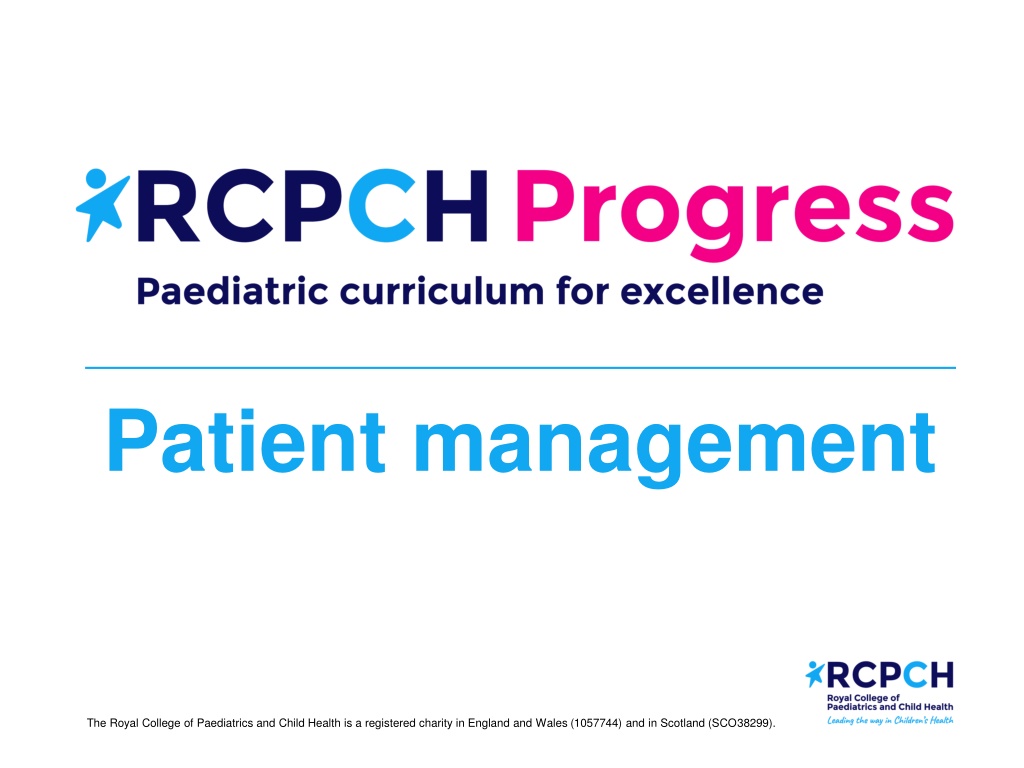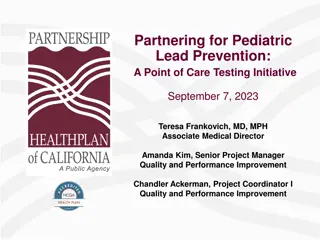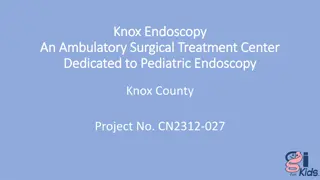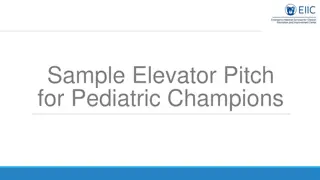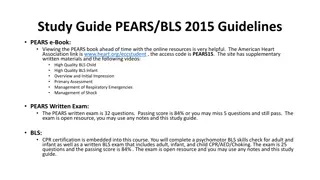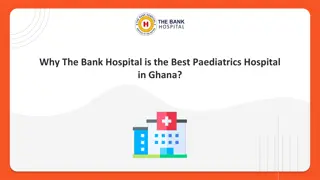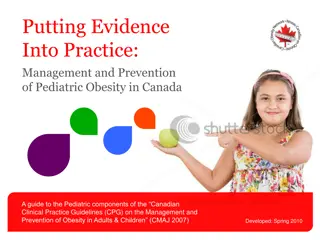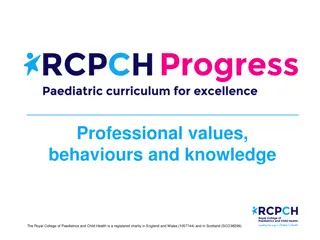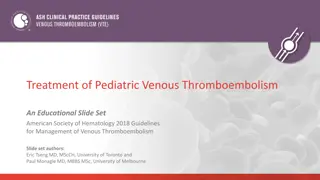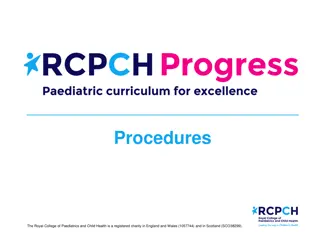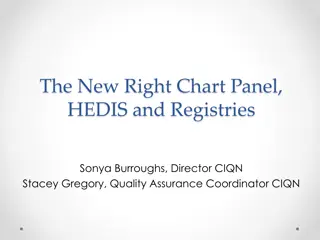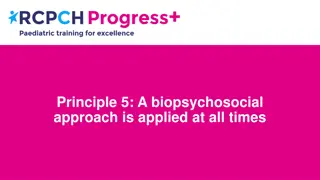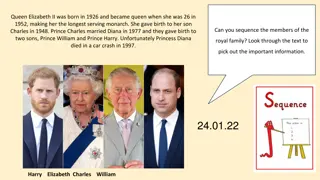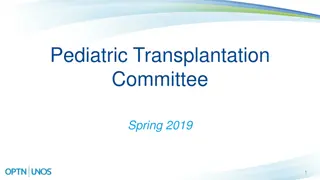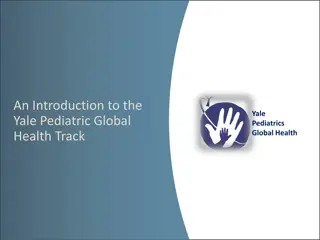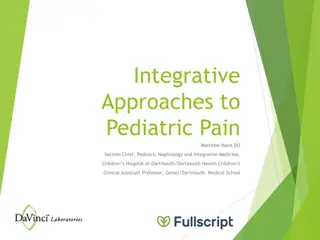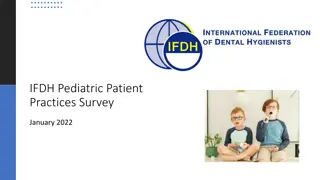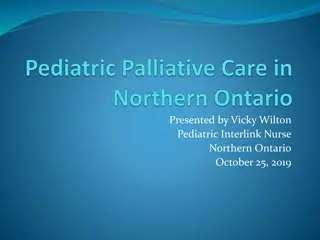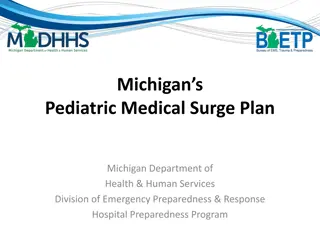Enhancing Pediatric Patient Management Practices at The Royal College of Paediatrics and Child Health
The Royal College of Paediatrics and Child Health, a registered charity, focuses on improving patient management through good practices, resuscitation management, and evidence-based medicine. Their curriculum emphasizes assessment, differential diagnosis, treatment planning, and recognition of life-threatening situations in children and young people, fostering collaborative and evidence-based care at different levels.
Download Presentation

Please find below an Image/Link to download the presentation.
The content on the website is provided AS IS for your information and personal use only. It may not be sold, licensed, or shared on other websites without obtaining consent from the author. Download presentation by click this link. If you encounter any issues during the download, it is possible that the publisher has removed the file from their server.
E N D
Presentation Transcript
Patient management The Royal College of Paediatrics and Child Health is a registered charity in England and Wales (1057744) and in Scotland (SCO38299).
Introduction Domain 4 Patient Management is our every day practice Aims to improve Patient Management by encouraging good practice Resuscitation Management of the dying child Awareness of limitations MDT working Evidence based medicine
Curriculum overview Learning outcome Conducts an assessment, makes a differential diagnosis, plans appropriate investigations and initiates a treatment plan. Key capabilities Recognises the life-threatening nature of some acute situations in CYP and knows when to call for help or seek personal support. Carries out an assessment, makes a differential diagnosis, plans appropriate investigations and initiates a treatment plan in accordance with national and local policies Level 1
Curriculum overview Learning outcome Key capabilities Recognises common presentations which may indicate life-threatening pathology and require urgent action. Demonstrates the ability to provide and lead basic and advanced resuscitation, including advanced airway management with the use of airway adjuncts to the point of intubation, and seeks specialist advice for palliative care emergencies. Demonstrates expertise in the multi-professional management of a range of common general paediatric conditions, both acute and chronic; adjusts protocol to the particular situations of CYP. Assesses the evidence base for treatment and assessment strategies, their limitations and when to act outside them with senior support. Seeks advice and support from other teams in a timely and collaborative manner. Performs an assessment of a child s physical, mental, and developmental status, incorporating biological, physiological and social factors across multiple clinical contexts; particularly to ensure a smooth transition between primary and secondary care. Works effectively with colleagues in primary care to manage risk in a considered manner. Refines differential diagnoses and tailors management plans in response to patient needs and/or initial treatment responses. Level 2
Curriculum overview Learning outcome Considers the full range of treatment and management options available, including new and innovative therapies that are relevant within paediatrics; anticipates the need for transition from paediatric services and plans accordingly. Key capabilities Diagnoses and supervises treatment in the common pathologies seen in babies and CYP. Encourages CYP to participate in their individual care, using expert resources appropriately. Supervises colleagues in the assessment and management of cases which are complex, nuanced or perplexing. Models colleagues a flexible, holistic, reflective, evidence-based approach to practice. Anticipates the need for transition to another service or is able to work jointly alongside another service to care for a patient. Collaborates flexibly across local health systems to lead in care quality. Level 3
Underpinning knowledge Clinical knowledge and expertise Managing complexity and uncertainty. Working in an MDT History taking, consent, prescribing Patient management Humane interventions, infection control and using medical devises safely
Everyday Practice Carries out an assessment, makes a differential diagnosis, plans appropriate investigations and initiates a treatment plan in accordance with national and local policies Diagnoses and supervises treatment in the common pathologies seen in babies and CYP. Performs an assessment of a child s physical, mental, and developmental status, incorporating biological, physiological and social factors across multiple clinical contexts
Resuscitation and the Acutely Unwell Child Recognises the life- threatening nature of some acute situations in CYP and knows when to call for help or seek personal support. Advanced Paediatric life support Neonatal Life support Mini-cex/ CBD/ reflection after life threating cases Demonstrates the ability to provide and lead basic and advanced resuscitation, including advanced airway management with the use of airway adjuncts to the point of intubation. Recognises common presentations which may indicate life- threatening pathology and require urgent action.
Care of the Dying Child Important skill Only covered in this capability in the generic curriculum Only one chance to get it right in each case Other ways to develop the skills Communication study days Simulation Working with a hospice palliative care emergencies Seeks specialist advice for
Evidence Based Medicine What? EBM is the conscientious, explicit, judicious and reasonable use of best evidence is making decisions about the care of individual patients Assesses the evidence base for treatment and assessment strategies, their limitations and when to act outside them with senior support. Why? To provide the best care for our patients. e.g. Corticosteriods in labour How Guidelines Assessing the research In accordance with national and local policies Models colleagues a flexible, holistic, reflective, evidence- based approach to practice Evidencing Clinical Questions in ePortfolio Evidence based medicine course Guideline review/development
Multi-Disciplinary Working Improves Paediatric Care Improves job satisfaction for the team But don t always work as well as we hope Wider than your own service Transition Evidencing Anticipates the need for transition to another service or is able to work jointly alongside another service to care for a patient Demonstrates expertise in the multi- professional management of a range of common general paediatric conditions, both acute and chronic; adjusts protocol to the particular situations of CYP Works effectively with colleagues in primary care to manage risk in a considered manner Collaborates flexibly across local health systems to lead in care quality
Conclusions Continue your every day practice but review and reflect. Consider the key capabilities as prompts to help you develop into the best version of your future clinician self
Useful training and resources RCPCH exam skills courses RCPCH How to manage clinical skills courses RCPCH Progressing paediatrics clinical courses RCPCH e-learning courses APLS/EPLS/NLS Child bereavement study days RCPCH guideline consultation panel
